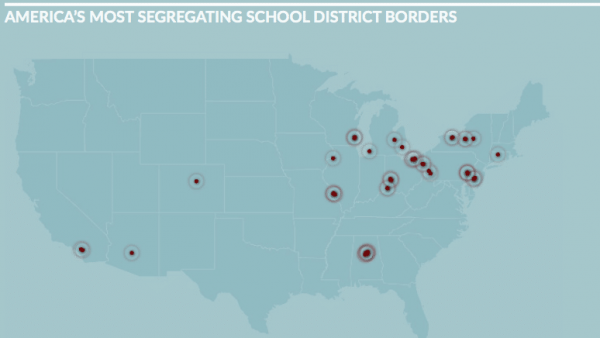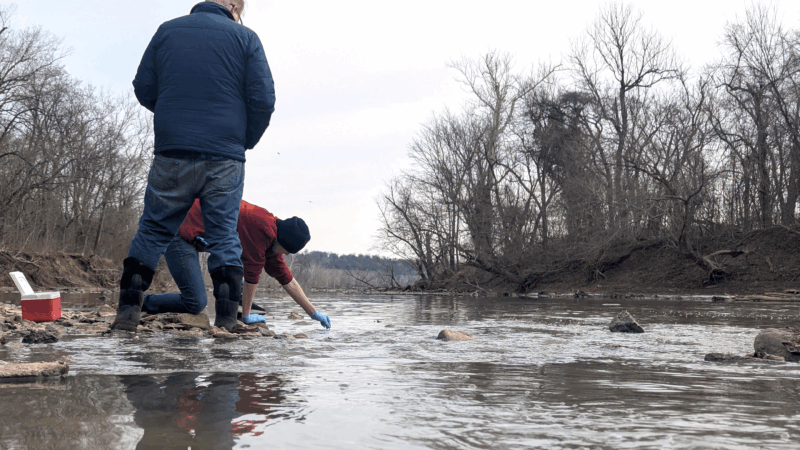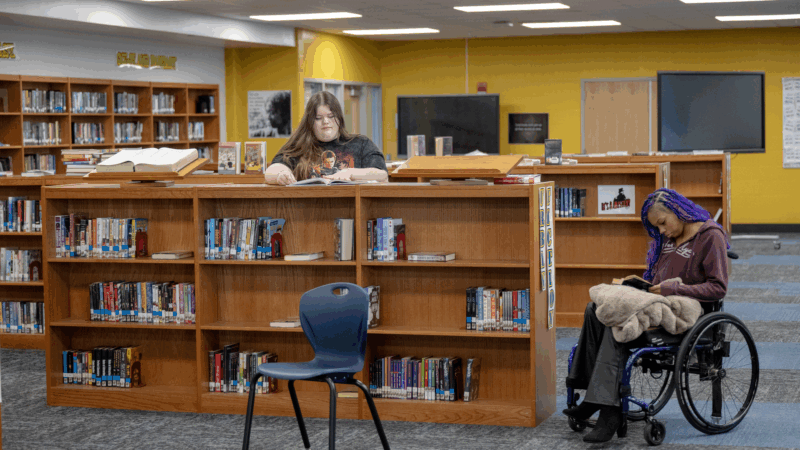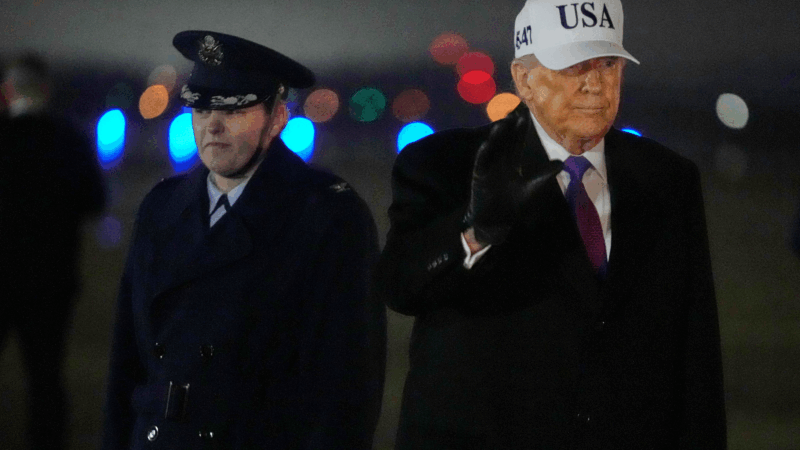Study of School District Borders Shows US, AL Economic Segregation
A wide body of research shows that students in poor school districts face real disadvantages. But the way the U.S. funds schools creates pockets of poverty right next to enclaves of wealth. That’s one conclusion of a report being released today by the nonprofit group EdBuild. It analyzed the nation’s 33,500 school district borders and then ranked the 50 that reflect and perpetuate economic segregation the most.
In Alabama, there are seven borders ranked in that 50, one of them between Hoover and Bessemer, the other six surrounding Birmingham City Schools. If the city were a state, it would have the second-most of any state in the nation. Birmingham has a particularly convoluted school district, bordering 13 others while the national average is five. The district is shaped the way it is partly because of a long history of “white-flight” systems seceding.
By the report’s metrics, Birmingham schools have a nearly 50 percent student poverty rate, but nearby Vestavia Hills, for example, is at about six percent, for an over-the-district-border difference of 44 percent. The average difference nationally is seven percent.
Property values, which affect the amount of available local money (which comes with fewer restrictions than state or federal money) skew significantly in favor of the suburbs, too.
The report attributes so much disparity to breakaway school systems, reliance on property taxes, and court rulings that have thwarted across-district desegregation efforts.
“The entire system is crazy,” says EdBuild founder and CEO Rebecca Sibilia. “People very rarely think about the use of school district boundaries as a means of state-sanctioned segregation … but when it comes to school districts, your neighbors matter.”
The report notes that whole-county school systems, and larger tax pools in general, tend to smooth out disparities between districts.
For a good national overview of the report, click here. To download the entire report, click here.
What I learned watching every sport at the Winter Olympics
Sit down with pop culture critic Linda Holmes as she watches the 2026 Winter Games. She is exhausted by cross-country, says "ow ow ow" during moguls, and makes the case, once and for all, for curling.
Scientists worry about lasting damage from Potomac sewage spill
Drinking water around the District of Columbia hasn't been contaminated. But scientists say the environmental damage could be severe.
Using saliva to detect disease holds promise, but it’s not perfected yet
Easier than a blood test, saliva tests have the potential to detect cavities, infections and even cancer. But a lack of insurance coverage and other obstacles stand in the way of wider use.
What worked and what didn’t with a cellphone ban at a Kentucky school
Keeping students off their devices is the new norm in many schools. We talked to students and educators at one Kentucky school to see how it's working.
Israeli settlers kill 19-year-old Palestinian American, officials and witnesses say
Israeli settlers in the occupied West Bank shot and killed a Palestinian American man during an attack on a village, the Palestinian Health Ministry said.
Trump says he doesn’t know if aliens are real but directs government to release files on UFOs
President Donald Trump said Thursday that he's directing the Pentagon and other government agencies to release files related to extraterrestrials and UFOs because of "tremendous interest."








